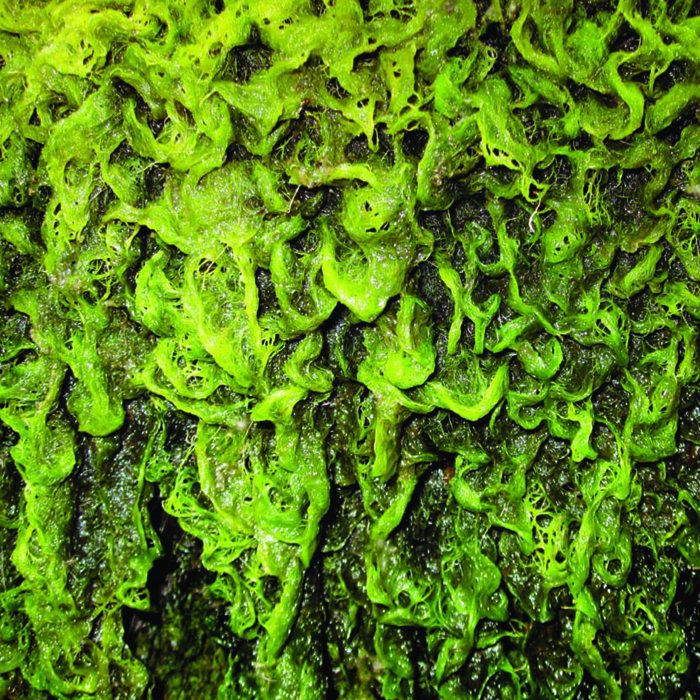For its initial moments, High Places vs. Mankind opens in predictable fashion. Dubby echo and scuffed percussion shuffle into view, but then this identifiable bassline slinks through the middle and by the time half a minute has passed, this glistening Balearic guitar line emerges and the whole thing takes on this palpable groove. When Pearson’s vocals come in, she’s in chilly diva mode, her croon rising up through the music. It’s not a million miles away from an act like Glass Candy, except there’s still a shamble to it that’s all High Places. The slightly tropical breakdown that gives way to an almost Disco Inferno guitar shimmer is utterly gorgeous, and it’s one of the most melodic tracks they’ve done. To call it High Places gone disco would be overselling it, but there are definitely those influences cropping up. Accusations of bandwagon jumping could be levelled against them if it didn’t sound so wonderful, drifting past in a beautiful, smoky-eyed haze. They follow it up with “On Giving Up,” which basks in similar waters, but hitting the beat even harder, Pearson singing that “tonight is going to be the night” in a voice that’s half promise and half threat, the track running liquid beneath her. It’s more danceable and direct without sacrificing all of the charms of their previous work.
And then, just as I’m starting to applaud the new direction they’re heading in, we hit “She’s a Wild Horse” and the wheels start to fall off. It’s fine enough, floating a folkish vocal melody floating over hollow percussion and shards of trembling guitar, but there’s not really enough there to sustain my interest. All the studio tricks they bring in over the course of the song only seem to emphasise that it’s more of an idea of a song than an actual song. You could call it the curse of High Places; as interesting as their work can be, they seem to falter on the verge of putting it all together consistently. The instrumental palette they draw from is interesting and varied; I love the microscopic construction of their tracks and the tiny details embedded under the surface of the fragile organic worlds they create. At the same time, many of their songs feel too insular, so wrapped up in themselves that they become opaque. At their best (like “From Stardust to Sentience” off the self-titled album), they’re Broadcast marooned on a beach in the tropics; at their worst you’re left with scrappy sketches drawn with echo and percussion that never resolve into something memorable.
After “Wild Horse,” the album devolves into a series of experiments that meet with varying results. “The Channon” and “Drift Slayer” find them detouring among meandering dronescapes and found sound clutter. There’s nothing obviously wrong with these tracks, but “The Channon” in particular is a jarring transition that doesn’t seem to fit amongst its surroundings and we suddenly seem a long way from those lovely, sundazed grooves that open the album. Elsewhere, “Canada” manages to find some shoegaze guitars to throw into the mix but still doesn’t really go anywhere in its somnambulist slouch. All this is fine for distracted listening, but as soon as you start to pay attention these songs seem to evaporate before your ears.
It’s not all complete misfires, however. “Constant Winter” shakes itself free of the torpor to splice some nearly funky bass-propelled segments between the more indistinct verses. “On a Hill in a Bed on a Road in a House” has a nice junkyard tribal rhythm that creaks at the seams, and while “The Most Beautiful Name” may be as slight as some of the earlier tracks, this time the melody’s almost strong enough to carry the scrappy dub percussion. Things are resurrected for album closer “When It Comes,” which finds that they’ve still got enough gas in the tank to pull off one of their narcoleptic disco anthems for those still half-asleep on the dancefloor. It’s a strong finish, but only leaves me wishing they’d spent more of the album exploring these fusions of their intricate sound with more danceable pop songs.
Overall, High Places vs. Mankind sees the band at a crossroads. The album title may refer to a battle with mankind, but it feels more like the real fight is with themselves. They’ve taken their sound in a number of new directions on this album, but they seem unwilling to commit to a particular one. At times it feels like the band is trying on styles, looking for something that suits them best. Experimentation isn’t necessarily a bad thing, but it makes for an uneven listen. Even still, there are some great tracks here and if you feel like cherrypicking, you could make a pretty wonderful compilation from the High Places discography so far. While this may not be their masterpiece, there’s enough here to hold out hope for next time.

